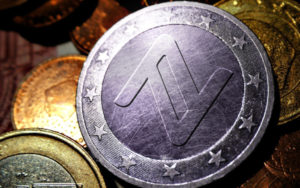
“Satoshi is female!”
That’s how New York Congresswoman Carolyn Maloney rallied the crowd on May 13 at the “Women on the Block” event in Brooklyn, New York, where more than 300 people came together to talk about cryptocurrency and blockchain technology. The event comes at time of tension within the crypto community, as blockchain stars like Lightning Labs CEO Elizabeth Stark are urging interviewers to stop asking what it’s like to be a woman in crypto.
“Stop marginalizing and write about the awesome work that women are doing,” Stark tweeted in February.
But to the ladies at the event, it’s less about creating a divide and more about a welcome reprieve from the perennial challenge of being treated like a crypto unicorn, when they just want to discuss use cases and applications.
True to that, many of the day’s discussions focused on the business opportunities within the space, from using the technology to shine a light on the opaque real estate industry to utilizing blockchain for supply chain management within the food sector.
Nonetheless, the fact is that women are still underrepresented in positions of privilege and power across the board – and the blockchain industry is no exception.
Based on findings from an international Quartz survey of 378 venture-backed crypto and blockchain companies founded between January 2012 and January 2018, roughly 8.5 percent had a woman on the founding team, compared to 17.7 percent in the broader tech industry.
And according to many women at the event, this lack of gender parity could hold the nascent industry back significantly.
“Women have a better understanding and different priorities with this technology,” European Parliament member Eva Kaili from Greece told the crowd, adding:
“We believe, with these tools, you can have a strong influence on the future.”
A true need
Sure enough, women at the event, including German entrepreneur Masha McConaghy, co-founder of both BigchainDB and the Ocean Protocol, told CoinDesk that women could benefit from blockchain technology, perhaps, even more than men.
That’s because women still deal with issues surrounding financial access and empowerment – women make up the majority of the world’s poor, according to the World Bank – and a pseudonymous and censorship-resistant system could provide a solution.
For instance, in Saudi Arabia, women are still legally barred from receiving a business loan or license until two men testify of her behalf. And according to the National Coalition Against Domestic Violence, at least 94 percent of women who experienced domestic abuse were also victims of economic abuse, where the abuser controlled her access to income or financial services.
McConaghy told CoinDesk, “We still don’t have it [freedom] yet, but we are moving towards it.”
Echoing that, Nigerian engineer Ese Mentie, who works with ConsenSys on the blockchain identity project uPort, told CoinDesk:
“There are still women whose husbands and fathers are controlling and they can’t access their own money.”
For her, inclusive corporate practices are the key to building effective blockchain solutions that take these different problems women deal with into account.
“If there is diversity, those conversations will happen,” she said.
And that could happen sooner than some expect. Kaili celebrated the fact that women are rising into leadership roles very quickly within the space, not just in terms of entrepreneurship, but also as it relates to legal research, diplomacy and open-source projects.
That makes sense, she continued, considering the cryptocurrency boom is popularizing conversations women have been having for years about financial access and control.
Focus on education
For many women at the event – who on Mother’s Day brought mothers, daughters and sisters – the key to getting more women in the space is education.
Education programs and data-sharing initiatives, like Women Who Code, were hot topics. And it was even proposed that the Women on the Block events should go on the road.
Speaking to this on a panel about investing in blockchain technology, Liz Rabban, vice president of business development at Celsius Network, a decentralized lending platform, said:
“The concept of decentralization and empowerment can only exist if we have education.”
And these statements about education generally garnered more applause than even Maloney’s opening statement about Satoshi [Nakamoto], the pseudonymous creator of bitcoin, the cryptocurrency that originally spurred all this excitement.
Still, Kaili was quick to note that the blockchain industry will only “duplicate the problems we already have” if leaders don’t prioritize gender parity.
But in knowing the struggles that women in the industry, and even more broadly, face, the tone of the day wasn’t discouraged. As a matter of fact, many of the women joked about the current perks of being a minority in the space – including the fact that there’s hardly ever a line for the women’s restroom.
Women on the Block organizer Alexandra Levin-Kramer promptly quipped:
“Not for long!”
New York Congresswoman Carolyn Maloney at Women on the Block image via CoinDesk
The leader in blockchain news, CoinDesk is a media outlet that strives for the highest journalistic standards and abides by a strict set of editorial policies. CoinDesk is an independent operating subsidiary of Digital Currency Group, which invests in cryptocurrencies and blockchain startups.
https://www.coindesk.com/women-on-the-block/
